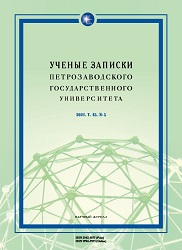СЛОЖНОЕ БУДУЩЕЕ ВРЕМЯ В «ПРОСТОМОВНЫХ» ПАМЯТНИКАХ XVI ВЕКА
COMPOUND FUTURE TENSE IN “PROSTA MOVA” TEXTS OF THE XVI CENTURY
Author(s): Ekaterina Andreevna SmirnovaSubject(s): Syntax, Semantics, Historical Linguistics, Eastern Slavic Languages, 16th Century
Published by: Петрозаводский государственный университет
Keywords: compound future tense; prosta mova; semantics; modality;
Summary/Abstract: The article describes various modal meanings expressed by one grammatical construction of compound future tense, using three sixteenth-century manuscripts written in the “prosta mova”, the literary language of the Grand Duchy of Lithuania. The special focus is placed on Compound Future I, namely the “маю + infinitive” construction and its meanings in the “prosta mova” clerical and regulatory manuscripts. In all the studied texts this construction has modal semantics with different meanings depending on a particular text – e. g., obligation, possibility/impossibility, inevitability or vow. In the clerical manuscripts, the constructions using the linking verb in the past tense (мель + infinitive) express both the modal meaning and the future-in-the-past meaning. Two most common meanings for the studied grammatical construction are prediction (inevitability) in the clerical texts and obligation in the regulatory text. This kind of research is important for studying the Slavic languages interference, which obviously had a significant impact on the “polysemy” of the studied construction in the XVI century.
Journal: Ученые записки Петрозаводского государственного университета
- Issue Year: 43/2021
- Issue No: 5
- Page Range: 66-70
- Page Count: 5
- Language: Russian

